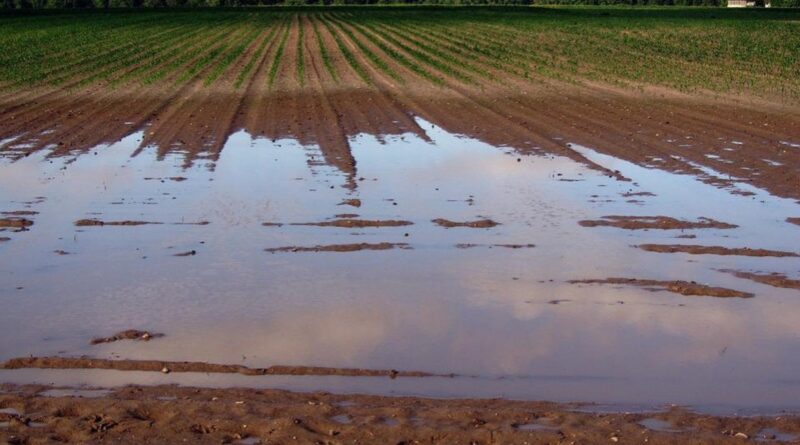South Sudan: The Forgotten Catastrophe of Floods in Bentiu State
Water from floods that destroyed entire villages and displaced thousands still remains — and plans to drain it have stalled. There is no hope that villagers will soon return to their submerged homes.
Water still cover large swathes of Bentiu four years after entire communites were plunged into chaos as extreme floods engulfed the area.
Other parts of South Sudan are grappling with returnees from the conflict in neighboring Sudan and the effects of climate change.
The climate crisis also compounds existing challenges in the country, such as poverty and rising food and energy prices, according to International Rescue Committee (IRC), which supports vulnerable communities — especially those who have been displaced by floods in the last four years and are now living in camps for internally displaced people (IDPs).
Every day for three years, 60-year-old Nyalam Pet Duop has dreamed of returning home. She and her family fled in 2020 when floodwaters from the nearby Nile River broke through a dyke and flooded their village.
“Life is difficult here in the camp. Before the floods displaced us, we cultivated our own food and had cattle,” Nyalam told DW.
“But now we survive from food rations provided for by aid organizations,” Nyalam added. “Besides, there is no clean water around here. Before, we got water from the water center run by the IRC, but the pump is broken
Nyalam lives in an IDP camp in Bentiu, the capital of South Sudan’s Unity State. The camp is located close to a small airstrip run by the United Nations — their only lifeline because it brings in much-needed supplies for the population.
Bentiu has become an island surrounded by floodwaters. All roads in and out are impassable, and only boats and the airstrip serve as lifelines for humanitarian aid to reach 460,000 people already displaced by a mix of both flooding and conflict. Dykes have been constructed to protect communities from being submerged and keep families and markets connected.
Dreams of returning home
Nyalam hopes to return to her village one day but is worried that she is getting older and won’t be able to cultivate her land.
“I might remain in the camp with my family because I’m frail and older. I will not have enough energy to grow crops on our land,” Nyalam said.
She moved in with her daughter Nyathai Reng Tong, her husband and three children. Nyathai told DW that conditions at the camp are unbearable — but they have no other option.
“My mother has to squeeze up in the small room with the children, and I put up with my husband in the remaining room,” Nyathai said.
“When there is no water, the situation is awful, and we have to go down the river, which also has contaminated water.”
About 900,000 people have been directly impacted as waters swept away homes and livestock, forcing thousands to flee — and inundated large swathes of farmland, worsening an already dire food emergency.
Boreholes and latrines have been submerged, contaminating water sources and risking disease outbreaks.
Effects of climate change
Although the civil war in South Sudan formally ended with a peace agreement in 2018, violence continues. Climate shocks and economic upheaval also contribute to record levels of hunger.
“The effects of climate change in South Sudan have led to unusually heavy rains: flood waters have forced people from their homes, leaving them without sufficient food and water,” According to Caroline Sekyewa, the country director of the International Rescue Committee (IRC).
“The compounded effects of climate change and conflict have devastating consequences for already vulnerable populations.”
How is the war in Sudan affecting South Sudan?
The United Nations said people fleeing conflict in Sudan have told harrowing stories. Around 3,000 people have been killed and 3 million displaced since violence erupted between Sudan Army chief Abdel Fattah al-Burhan and his former deputy Mohamed Hamdan Daglo’s paramilitary Rapid Support Forces (RSF).
Many of the displaced have crossed into South Sudan, compounding more problems for a country that has been struggling to support those displaced by floods.

Sign up for free AllAfrica Newsletters
Get the latest in African news delivered straight to your inbox
“It is a challenging situation. Before the Sudan crisis happened, 9.4 people needed humanitarian assistance, yet the humanitarian response plan is less than 40% funded,” IRC’s Caroline Sekyewa told DW in the South Sudanese capital Juba.
“It is a situation that needs to be better funded. Many returnees are returning to situations where social services, access to food, education, water, hygiene and sanitation, and medical care are constrained.
“It is constraining host communities and resources available for the UN and NGOs such as IRC to meet all those needs.”
“We are hoping to ramp up significant response to support for the returnees and those who have been displaced,” Sekyewa concluded.
Edited by: Keith Walker
While you’re here: Every weekday, we host AfricaLink, a podcast packed with news, politics, culture and more. You can listen and follow AfricaLink wherever you get your podcasts.

